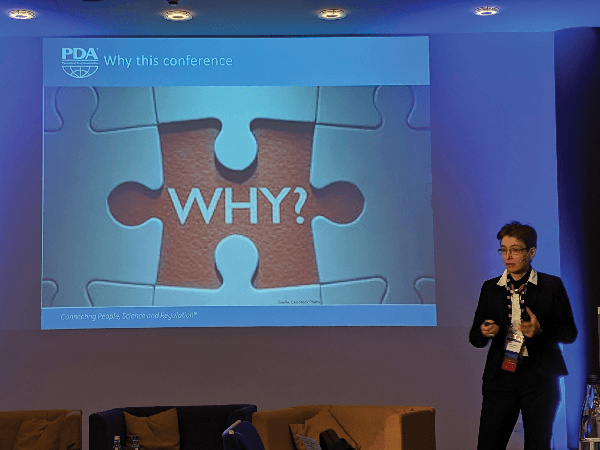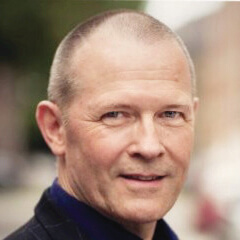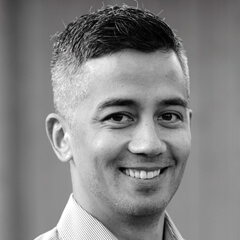The Role of Project Managers in Pharma

In September, PDA will host the one-day meeting, Project Management in the Pharmaceutical Industry, in Munich. Peter Reichert, Principal GMP Scientist, GN Hearing, and chair of the meeting, along with Garrett Van Vactor, Transformation Lead and Project Manager, Novartis, and member of the planning committee, graciously answered some questions for Kerstin Wilken, PhD, PDA Europe Director of Programs and Education, about the current state of project management in the industry.
Wilken: What challenges do project managers face in the pharmaceutical industry?
Reichert: To answer this, we have to look at what motivates typical pharmaceutical project managers. These are high achievers, often driven by a purpose who need challenges, energy, experience leading, etc. They excel at managing people, tasks, suppliers and risk management, and at foreseeing how a project will develop. Their challenges come in various shapes and forms, at least from what I know happens in the software and device branches.
Van Vactor: From a macro perspective, our industry has two types of projects— molecule and nonmolecule projects. Molecule projects are unique to pharma; therefore, we as an industry, are the leaders. For nonmolecule projects, i.e., those not specific to pharma, data and observations tell us that we are lagging behind other industries and need to be better. Additionally, when we look at personalized medicines, the way in which we innovate and deliver will continue to evolve, and, as project managers, we have to be ready to support this evolution.
(left) Kerstin Wilken takes the stage at the 2018 PDA Europe Project Management Conference
Wilken: From your point of view, what are the greatest benefits of well-executed project management within pharma?
Reichert: It is always important to come “First to Market.” For one, every day lost or gained is a lot of money, and, second, it is just plain common sense. I think that good projects are characterized by excellent and mature project managers who have the experience to plan and manage well but also the courage to cut through the fog of internal politics. Doing so eliminates situations that would otherwise be harmful for both the project and the organization. These are people who sometimes risk their own position by challenging, in a polite yet clear manner, the status quo. Without them, unchallenged and unfounded assumptions may cause a project to fail miserably.
Van Vactor: For nonmolecule projects, change must be both frictionless and inclusive to achieve qualitative benefits. If we can implement a change without much friction or disturbance, that is key. Additionally, if we are able to build in change from the grassroots level, then the change will be a) sustainable and b) a starting point for additional enhancements. For quantitative benefits, we should focus on the value project management brings to budget, schedule and scope.
Wilken: Regulatory and patient impact considerations are important during lifecycle changes. Do these requirements warrant a different approach to projects in the biopharmaceutical industry?
Van Vactor: Personally, I think focusing on efficiency and simplification is key to addressing regulatory concerns and patient impact during the lifecycle.
Reichert: The pharma and device industries have developed considerably over the last 15 years. Complexity in the supply chain, R&D and regulatory requirements has grown. In a sense, the complete picture for pharma is becoming more holistic— which is actually a good thing.
I think the key here is to understand that as a project manager you learn new things every day. With this kind of attitude, a successful project manager must be at the forefront of what is going on regarding new regulatory requirements, such as recent inspection findings, and keep up to date on new technologies or approaches. In other words, be informed to keep sharp. This requires a project manager to think and reflect and build and maintain a network of contacts.
So, how to build up this knowledge base? Help can come from a variety of regional and international organizations. Many organizations and regulatory bodies have contributed to developing new standards and expanding collaboration across the globe. For example, ICH has provided the world with a unified approach of common standards across regulatory agencies and international companies. Mutual recognition and other guidelines have been widely adopted by many agencies as required regulatory approaches.
Also, look at PDA. The Association offers highly acknowledged technical reports, education courses, conferences and workshops, local chapters and more! I encourage project managers who wish to excel in this industry to take advantage of PDA’s offerings along with ICH documents and information from global regulatory agencies. This will make life so much easier for the pharmaceutical project manager!
Interested in attending Project Management in the Pharmaceutical Industry? To learn more and to register, visit the meeting website!
Wilken: Why should companies invest in full-time, trained and certified subject matter experts for project management?
Reichert: I believe that we should look at the team. A pharmaceutical project manager can be compared to the conductor of an orchestra (i.e., the project team), knowing the notes, the whole music piece and having carefully made note of the difficult parts where timing is important and the places where tempo can impact the whole performance. Just like a conductor can also modify the score with their own pauses and tempos, a pharmaceutical project manager must be attuned to the art of flexibility and improvising. These skills do not come overnight. A good rule of thumb is that it takes 10,000 hours of experience to build a skill. Hence, training and development adds to the skill and agility of a project manager.
One point here, I think that members of a project team with high responsibility should have at least basic training in what to do, what not to do and when to do in terms of project management. They must know a bit of the dynamics. This will alleviate concerns or insecurities when the speed increases and the focus and creative tension builds up momentum in a project. I think that the members of a team must have some understanding of project management dynamics.
Wilken: What is one piece of advice you would like to share with project managers in pharma?
Van Vactor: At Novartis we have a “curious culture.” Whether it is about technical domains, project methodologies, lessons learned, different environments, etc., I recommend periodically reflecting on how we are feeding our curiosity. I find this brings energy and inspiration.
Wilken: What is one feature every pharmaceutical project manager should have?
Van Vactor: An “ownership mindset” would be great as a standard. Many times project managers act as stewards but do not take on accountability for the budget, schedule and scope. If project managers feel empowered to own these dimensions, the project will be more focused and others will take notice.
Reichert: Let me turn this question around, I think we should ask the industry. I know that pharma holds many experienced and pragmatic people who could offer input into the characteristics needed for successful project managers in the industry.



 Peter Reichert is Principal
GMP Scientist and Program
Manager at Corporate
Quality in GN Hearing based
in Copenhagen, Denmark.
In this role, he supports GN’s
objectives in bringing innovative,
world-class, personalized hearing solutions
paired with AI technology to people who
want life to sound better.
Peter Reichert is Principal
GMP Scientist and Program
Manager at Corporate
Quality in GN Hearing based
in Copenhagen, Denmark.
In this role, he supports GN’s
objectives in bringing innovative,
world-class, personalized hearing solutions
paired with AI technology to people who
want life to sound better. Garrett Van Vactor is a
Transformation Lead and
Project Manager at Novartis
based in Basel, Switzerland.
In this role, he works with
Novartis’ business functions
on strategic plans and projects to
help deliver Novartis’ commitment to using
science-based innovation to address some
of society’s most challenging healthcare
issues.
Garrett Van Vactor is a
Transformation Lead and
Project Manager at Novartis
based in Basel, Switzerland.
In this role, he works with
Novartis’ business functions
on strategic plans and projects to
help deliver Novartis’ commitment to using
science-based innovation to address some
of society’s most challenging healthcare
issues.